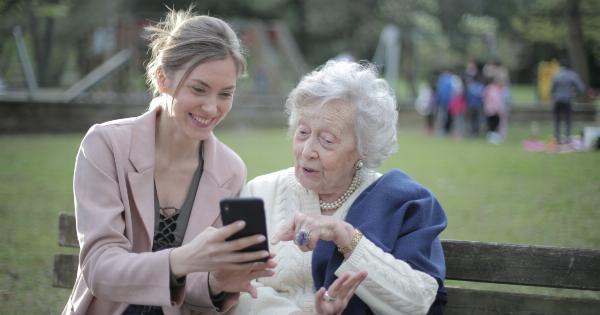Every child is unique and learns at their own pace. Some children may face learning challenges that make it difficult for them to keep up with peers in school.
Learning challenges can manifest in various ways, such as difficulties with reading, writing, math, or concentration. It is crucial for parents to recognize and address these challenges in order to provide the necessary support and help their child thrive academically and emotionally.
Identifying Learning Challenges
The first step in helping your child with learning challenges is to identify the specific areas in which they struggle.
This can be done through regular communication with teachers, observing your child’s behavior and performance in school, and seeking professional evaluations if necessary. Some common signs of learning challenges include:.
- Difficulty understanding and following instructions
- Slow reading or difficulty comprehending written text
- Poor handwriting or difficulty organizing thoughts on paper
- Struggling with basic math concepts or calculations
- Inability to concentrate or easily getting distracted
- Difficulty remembering information or retaining knowledge
Creating a Supportive Environment
Once you have identified the learning challenges your child is facing, it is important to create a supportive environment at home. This includes:.
- Open Communication: Encourage your child to express their feelings and frustrations about their learning challenges. Listen attentively and validate their emotions. Assure them that you are there to support them.
- Establishing Routines: Establish a consistent schedule for homework, studying, and other school-related activities. Having a routine helps children with learning challenges feel more organized and in control.
- Providing a Quiet Workspace: Create a quiet and distraction-free area where your child can focus on their schoolwork. Minimize noise and visual distractions to help them concentrate better.
- Setting Realistic Goals: Break down tasks into smaller, manageable goals. Celebrate achievements along the way to boost your child’s confidence and motivation.
- Encouraging Healthy Habits: Ensure your child gets enough sleep, eats nutritious meals, and engages in physical activity. A healthy lifestyle plays a significant role in enhancing cognitive functioning.
Collaborating with Educators
Working together with your child’s educators is essential for addressing their learning challenges effectively. Maintain open lines of communication with your child’s teachers and stay informed about their progress in school.
Here are some strategies to collaborate effectively:.
- Schedule Regular Meetings: Set up regular meetings with your child’s teachers to discuss their progress, areas of improvement, and any concerns.
- Share Information: Inform teachers about your child’s learning challenges and any strategies that have worked well at home. Provide them with relevant information to help them understand your child’s needs better.
- Ask for Accommodations: Request appropriate accommodations or modifications in the classroom to support your child’s learning. This may include preferential seating, extra time for assignments or tests, or the use of assistive technology.
- Explore Additional Resources: Inquire about additional resources available at school, such as tutoring programs, learning support specialists, or special education services.
Seeking Professional Help
In some cases, learning challenges may require professional intervention.
If you have concerns about your child’s learning difficulties, it is beneficial to seek help from specialists such as educational psychologists, speech therapists, or occupational therapists. These professionals can assess your child’s strengths and weaknesses and recommend appropriate interventions and strategies.
Using Assistive Technology
Assistive technology can be highly beneficial for children with learning challenges. These tools and devices help enhance learning, improve focus, and develop important skills. Here are some examples of assistive technology:.
- Text-to-Speech Software: Converts written text into spoken words, aiding children with reading difficulties or visual impairments.
- Speech-to-Text Software: Transcribes spoken words into written text, assisting children with writing difficulties or physical disabilities.
- Graphic Organizers: Digital tools that help children organize their thoughts and ideas, improving writing skills.
- Math Apps: Interactive applications that make math concepts more engaging and accessible for children struggling with math.
- Time Management Apps: Tools that help children manage their time, set reminders, and stay organized.
Building Self-Esteem and Resilience
Children with learning challenges may face self-esteem issues due to difficulties keeping up with their peers academically. As a parent, it is crucial to foster a positive self-image and resilience in your child. Here’s how you can help:.
- Focus on Strengths: Encourage and celebrate your child’s strengths and achievements, whether they are academic or non-academic. Help them discover their talents and interests.
- Teach Self-Advocacy: Encourage your child to speak up for themselves, ask for help when needed, and advocate for their own learning needs.
- Promote a Growth Mindset: Foster a belief in continuous learning and improvement. Help your child understand that intelligence and abilities can be developed through effort, practice, and persistence.
- Provide Emotional Support: Be empathetic and understanding towards your child’s struggles. Let them know that mistakes are part of the learning process and that you are proud of their efforts.
Celebrating Progress and Achievements
Recognize and celebrate your child’s progress and achievements along their learning journey. These moments of success help boost their self-confidence and motivation. Remember to:.
- Acknowledge Effort: Praise your child’s hard work, resilience, and dedication. Let them know that you appreciate their commitment to learning, regardless of the outcome.
- Set Milestones: Establish short-term goals that your child can work towards. When they reach these milestones, celebrate their accomplishments together as a family.
- Create a Positive Learning Environment: Encourage a positive attitude towards learning at home. Engage in educational activities together and make learning enjoyable.
Conclusion
Helping a child with learning challenges requires patience, understanding, and collaboration.
By creating a supportive environment, collaborating with educators, seeking professional help if necessary, and nurturing your child’s self-esteem, you can empower them to overcome obstacles and thrive academically and personally.





























